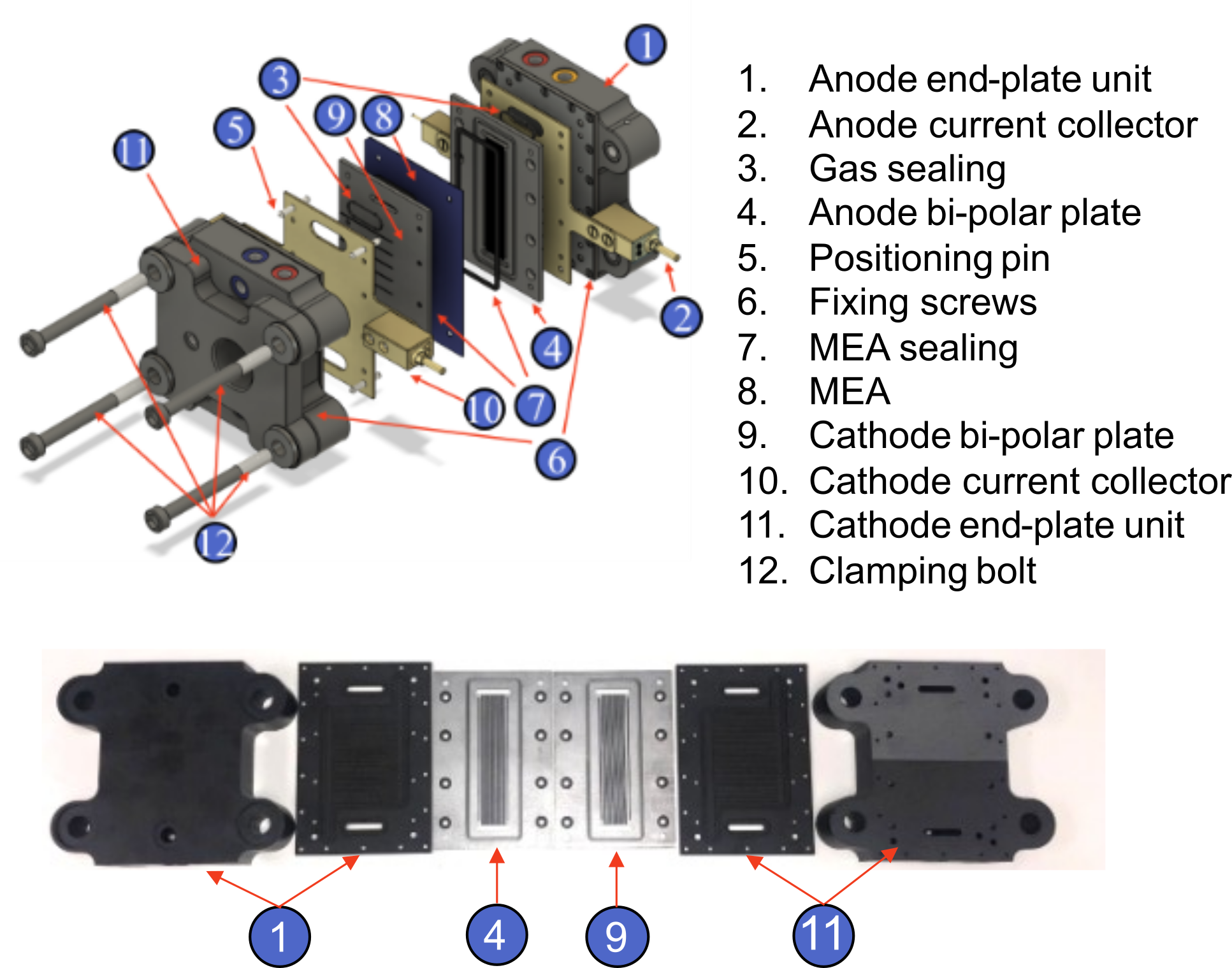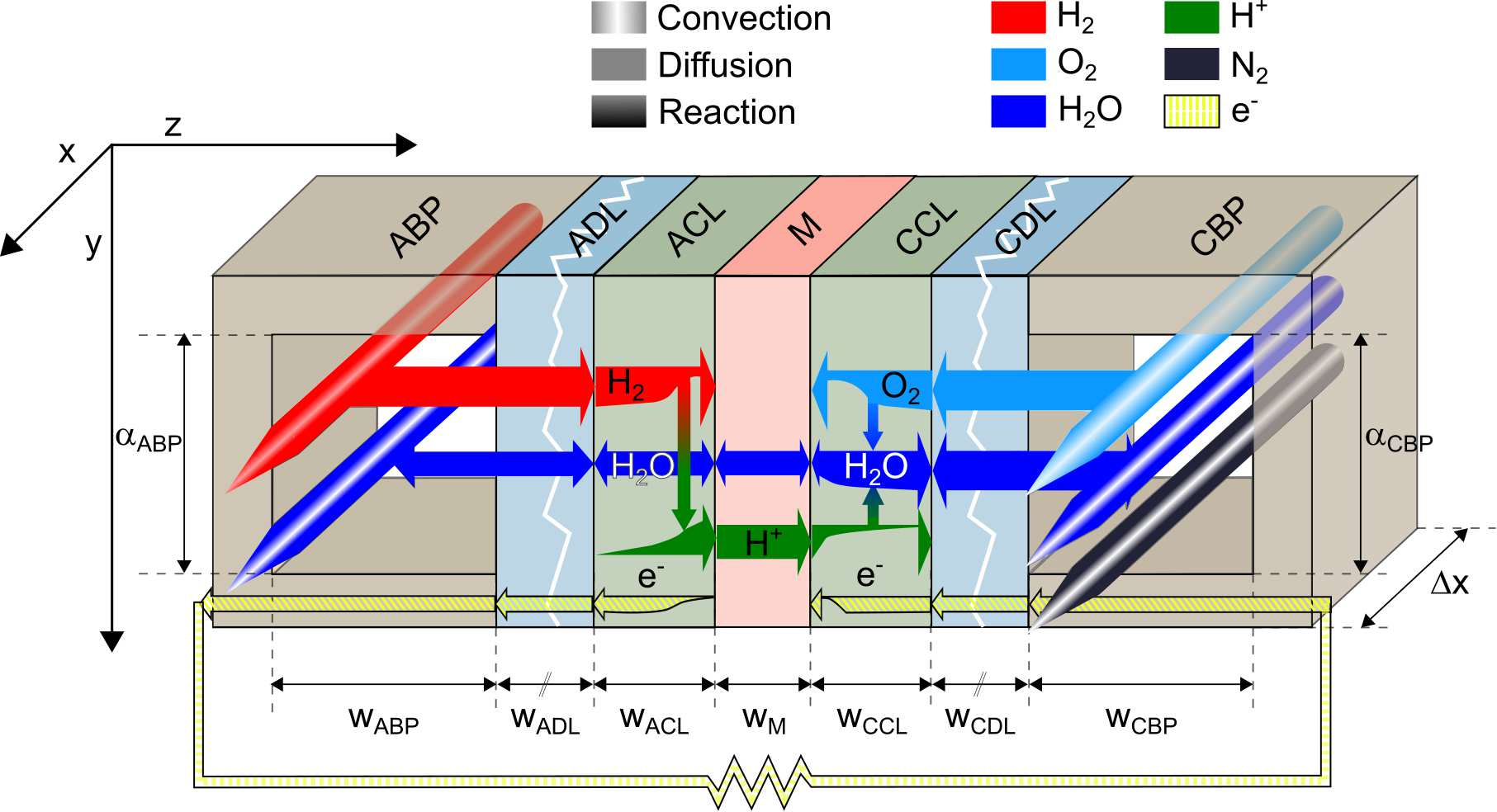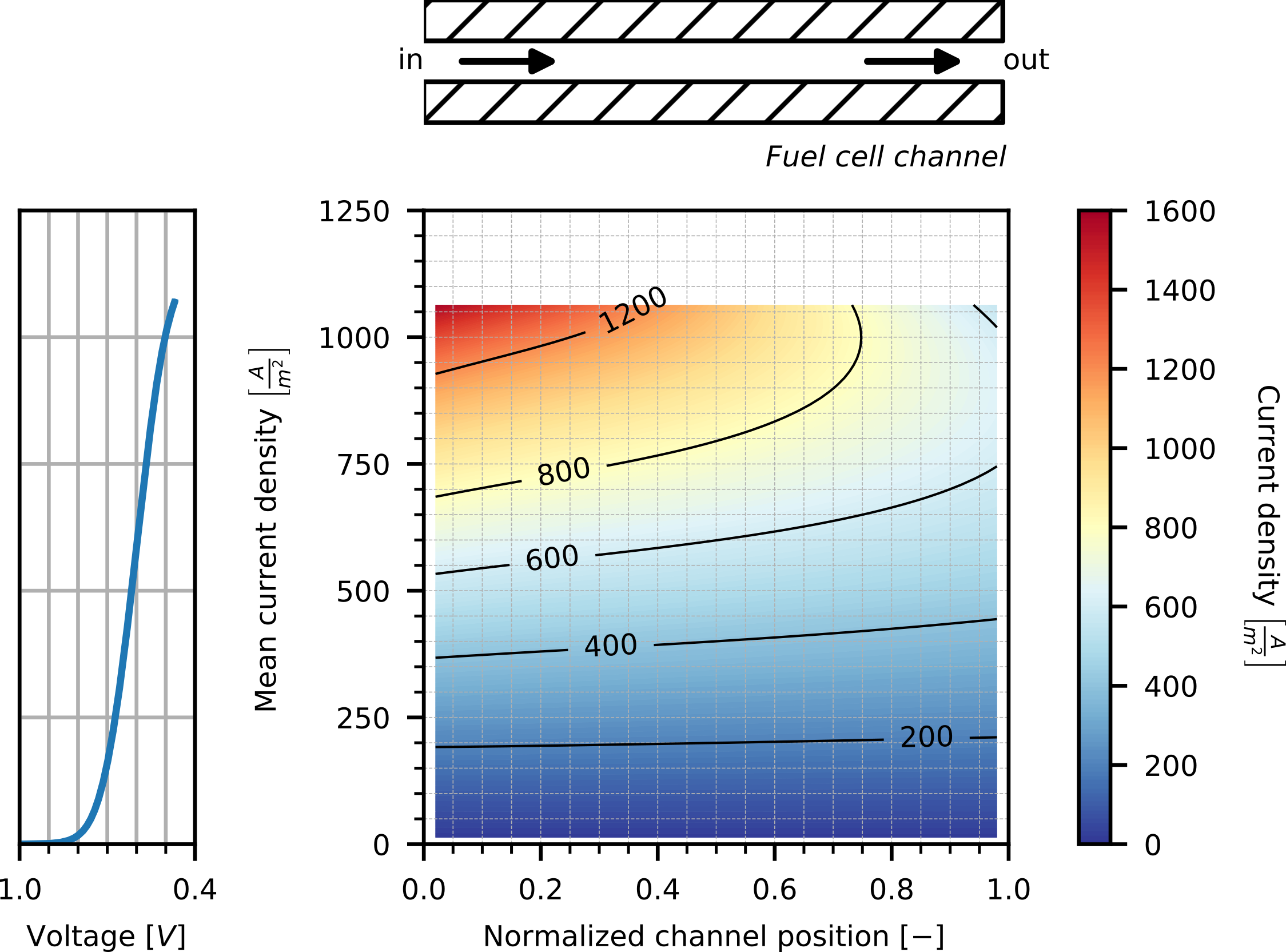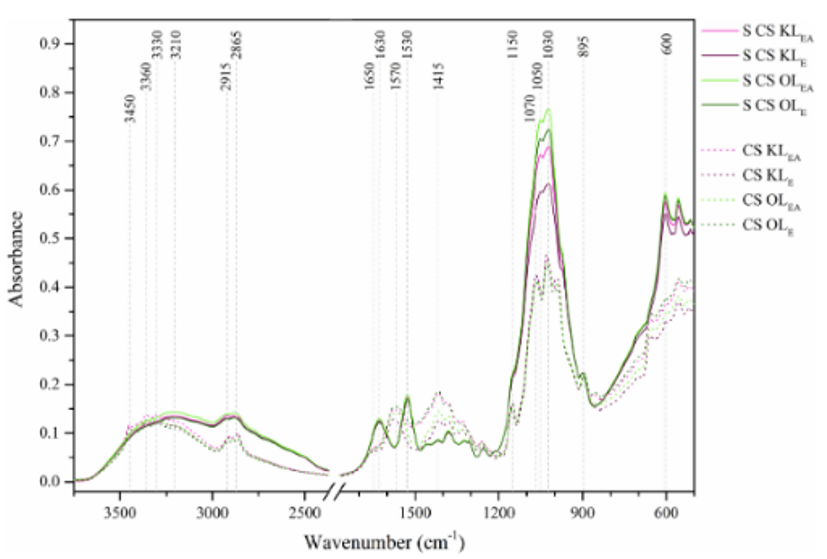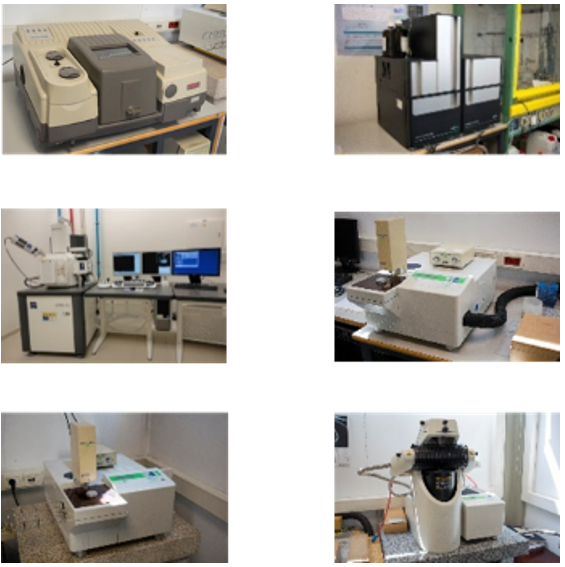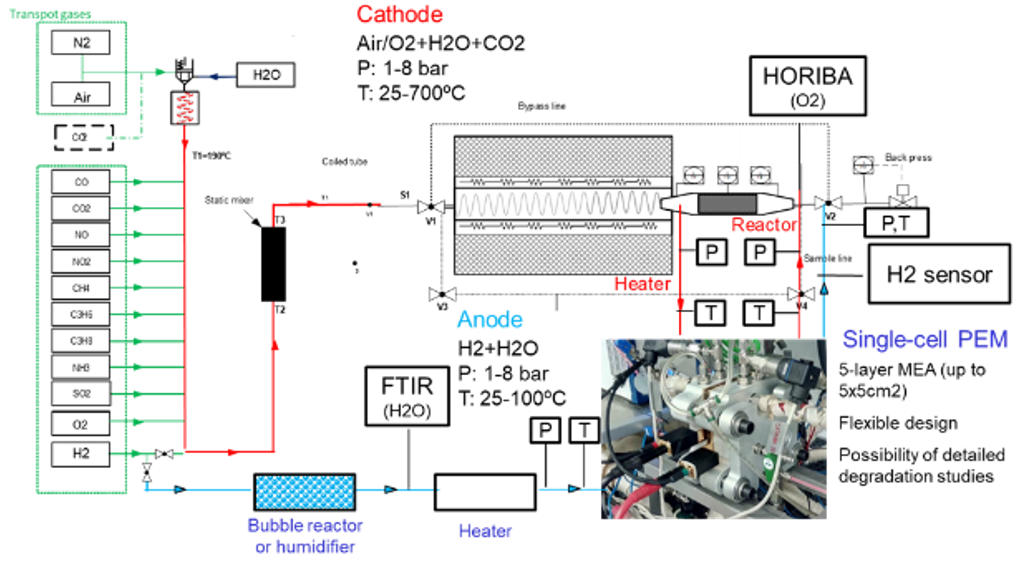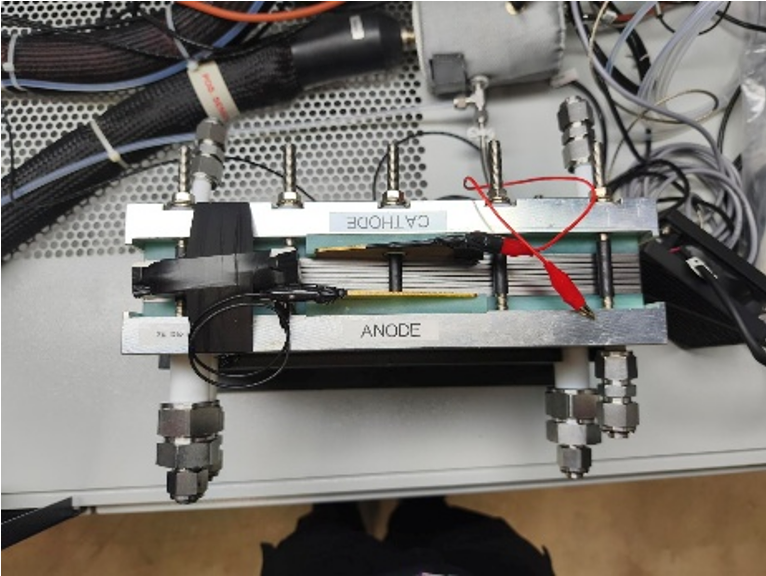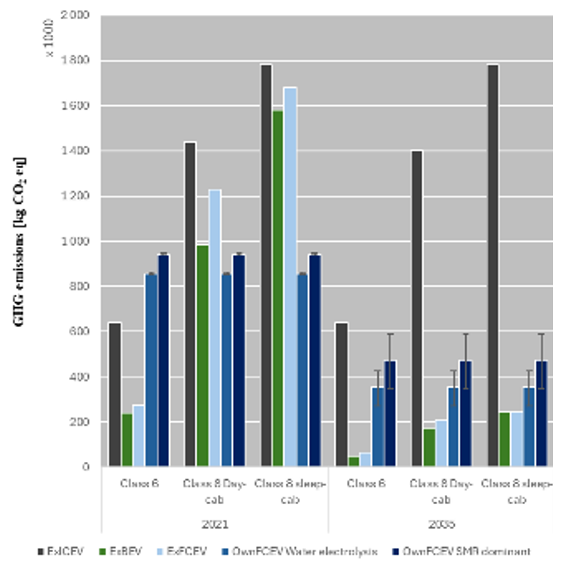
Fuel cell systems
PEM technology development and optimization
This research line focuses on the development and optimization of Proton Exchange Membrane (PEM) fuel cell systems for efficient and sustainable energy conversion by combining advanced experimental and numerical techniques. It investigates the fundamental electrochemical processes, materials behavior, and system-level integration to enhance performance, durability, and cost-effectiveness. The research also explores diagnostic and modeling tools to understand degradation mechanisms and improve control strategies. Overall, the target is to advance PEM fuel cell technology toward practical applications in transportation and stationary power generation.

